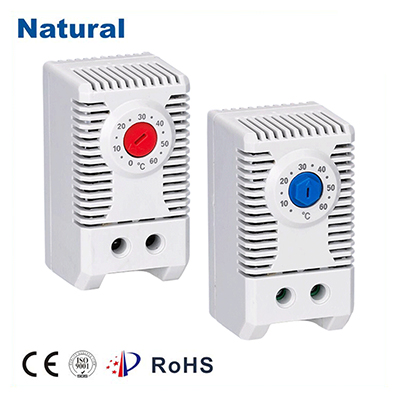In the realm of scientific research and industrial processes, maintaining precise and consistent temperature conditions is paramount. This feat is often achieved through the use of temperature control switches, with one of their most critical applications being in incubators. In this article, we will delve into the significance of temperature control switches in incubators and explore how they contribute to various fields of study and industry processes.

The Basics of Incubators Before diving into the importance of temperature control switches, let’s first understand the essential role incubators play. Incubators are specialized devices designed to maintain controlled environmental conditions, primarily temperature and humidity, for various purposes. These purposes can range from the cultivation of microorganisms in microbiology laboratories to the hatching of poultry eggs in agricultural settings. The key to their effectiveness lies in their ability to provide a stable and controlled environment for the specimens or products they house. The Heart of the Incubator: Thermostats At the core of every incubator is a thermostat, a device that regulates temperature. Thermostats work by sensing the current temperature and comparing it to a desired setpoint. When the actual temperature deviates from this setpoint, the thermostat activates the heating or cooling elements to bring the environment back to the desired temperature. This process is essential in ensuring that the conditions within the incubator remain stable and conducive to the intended purpose. The Precision of Temperature Control Switches Temperature control switches are the linchpin of incubator thermostats. These switches are designed to offer precise control over temperature, often with minimal fluctuations. In scientific experiments, this precision is crucial, as even slight temperature variations can affect the growth and behavior of biological specimens. Likewise, in industrial applications such as food processing or pharmaceutical production, temperature control switches ensure product quality and safety. Applications in Scientific Research In scientific research, incubators equipped with temperature control switches play a pivotal role. Biologists, microbiologists, and researchers in various other fields rely on these devices to cultivate and study organisms under tightly controlled conditions. Whether it’s growing bacteria for medical research or nurturing cell cultures for genetic studies, the accuracy of temperature control is indispensable. Agriculture and Hatcheries In the agricultural sector, incubators with reliable temperature control switches are used in hatcheries to ensure the successful hatching of eggs. Poultry farms, for instance, depend on these devices to maintain optimal conditions for the incubation of eggs, leading to healthy and thriving chicks. The accuracy of the temperature control switch directly impacts the hatchery’s success rate and productivity. Industrial and Commercial Applications Beyond scientific research and agriculture, incubators with temperature control switches find applications in various industrial processes. Industries such as food manufacturing, pharmaceuticals, and electronics rely on incubators for fermentation, product testing, and component aging. In these settings, precise temperature control is essential for consistent product quality and adherence to safety standards. Conclusion Temperature control switches are the unsung heroes behind the scenes, ensuring the success of incubators in diverse fields. Their ability to maintain precise and stable temperature conditions is instrumental in scientific research, agriculture, and industrial processes. As technology continues to advance, these essential components will likely evolve further, enabling even greater precision and control over environmental conditions, ultimately advancing the frontiers of science and industry.